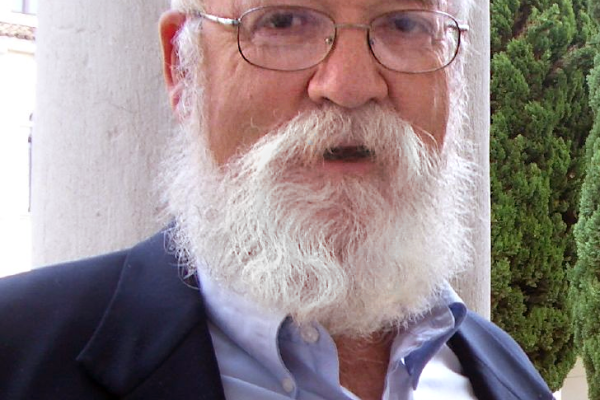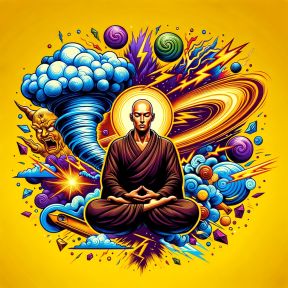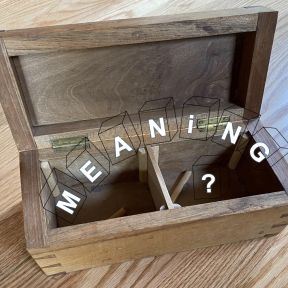
Consciousness
The sense that you are experiencing something—that, in a nutshell, is consciousness. The perceived sensation of pain that you know as heartburn, the smell that draws you to a steak on the grill, the sight of magenta streaked across the sky at sunset—all are instances of conscious experience. And all are inherently subjective in nature, containing more than purely physical information. In the world of science and philosophy, such blips of experience are known as qualia, and they are the content of consciousness.
Contents
One of the great mysteries of science is how the physical molecules we humans are made of—the same things everything else in the universe is made of—give rise to the mental state of awareness (and, hopefully, understanding) of what is going on around us and, to a considerable degree, inside our own bodies and minds. (The “how” of consciousness has been dubbed “the easy problem” of consciousness.) Even more puzzling is why we have such awareness. (This is the so-called hard problem of consciousness.)
Philosophers have been trying to figure out what consciousness is and what grand purpose it serves since Socrates strode the streets of Athens. Over time, as science moved from explaining or understanding the objective world of things to the inner world of knowing and feeling, neurologists and neuroscientists have joined the quest to understand the nature of subjective experience. It may be that no one will know why consciousness exists until physicists can explain why the universe exists—or scientists understand the relationship between the mind and the body.
There is no one brain process creating consciousness. Rather, it arises from a symphony of brain processes piecing together aspects of what our senses record internally (interoception) and externally and signal to the brain. But, in just one of the many conundrums and ironies of consciousness, many of the processes of consciousness work outside our awareness.
Thought to arise in some still-unknown way through the actions of neurons in the brain, consciousness is a mark of awareness of one’s self, including one’s body, as well as a reflection of capacity for engagement with the world. And although it doesn’t itself play an active role in determining behavior, it is a requirement for much human behavior. It is also a requirement for health and well-being.
Consciousness naturally varies in degree, and there are healthy as well as pathological variations in degree of consciousness. Sleep is a necessary alteration in conscious, and dream sleep is such a bizarre alteration of consciousness no one has figured out yet what it is. Blows to the body can impair consciousness by interrupting the transmission of nerve signals or blood flow to the brain.
Sleep is a perfectly healthy—and necessary—state characterized by a lack of consciousness. Consuming too much alcohol (or other poisons) can induce a stupor, a state of unconsciousness in which mental, physical, and sensory functions are impaired; no information registers. The state of flow, usually felt as extremely pleasurable, is marked by such highly concentrated awareness that it blots out awareness of self and everything else but the object of focus.
Disorders of the brain, such as psychosis, can influence states of consciousness and the content of consciousness. Psychological trauma can alter consciousness. In addition, dissociative disorders, often experienced as a sense of disconnection from one’s surroundings, disrupt the normal integration of consciousness, memory, identity, perception, motor control, and behavior. They generally occur in the aftermath of acute stress or trauma, often as a protection from emotional injury.
Consciousness can also be intentionally manipulated. By actively focusing attention on one’s breath, for example, meditation can so effectively shift the burden of awareness, especially away from distressing thoughts (a form of internal information), that it is often deployed therapeutically.
Deliberately diminishing awareness with anesthetics (without sensibility or perception) enables doctors to repair the human body. At the opposite extreme, psychedelic agents magnify the inputs to awareness, and the changes in consciousness they can catalyze also can have therapeutic value for an array of mental health disorders.
Most mental processes operate outside of conscious awareness. That doesn’t mean that the brain isn’t taking in information or analyzing it. It is, and a classic example is depth perception. Another type of unconscious mental process is motor programming—say, all the neural processes that enable you to move your jaws, lips, and tongue to produce different speech sounds. Unconscious processes contribute to our capacity for consciousness.














